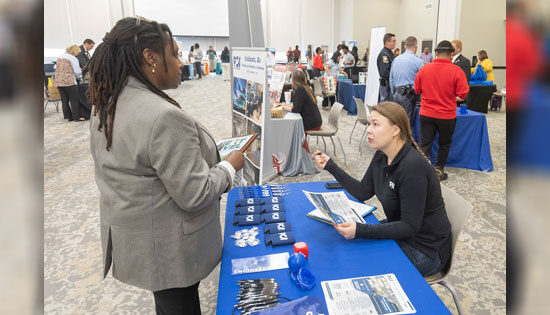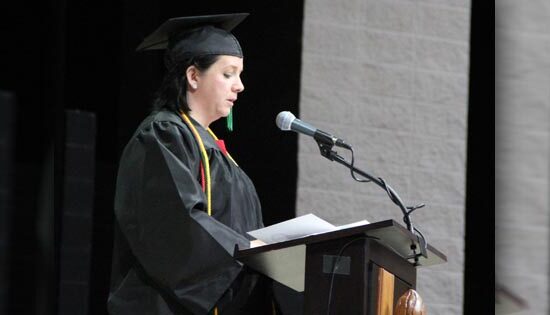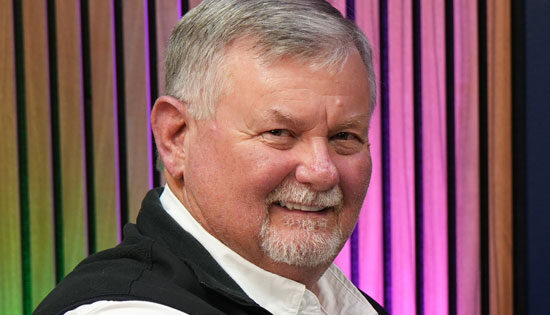As Humans we yearn to make our Societies Safer and Better. And that’s often all that matters.
Nick Rudnik, Valdosta Today Opinion Contributor
In 1950 Ray Bradbury published among his most coveted works, The Martian Chronicles. The tome, a series of collected vignettes written by Bradbury in the late-1940s, details a conjured struggle between native Martians and colonists from Earth, who escape great wars and conflict on their own planet for the promise of starting over on the fourth planet from the Sun.
My personal favorite is the final short in the book, “The Million-Year Picnic.” The piece tells the story of a Minneapolis family of five as they take a poached rocket ship from Earth to Mars for a “fishing trip.” Towards the end of the story, the father destroys all documents and ephemera detailing their lives on Earth. He then tells his three sons that he has a surprise for them—he’s going to introduce them to the “illusive” Martians. They saunter towards the banks of one of Mars’s many canals, where the father tells his sons to peer into the water. There, they see only their reflections. “There they are,” their father tells them. They’ve become the Martians. They’re not returning to Earth.
Bradbury’s last story is, in my opinion, his best because, unlike the others in his collection, we don’t know if the Minneapolis family makes it on Mars. We are left only with the inchoate feeling of hope; we desperately want them to succeed where so many others have failed. The family left Earth with the faith that what awaited them over 140 million miles away was something better; that regardless of what life was like on Mars, merely a shot at a new one was far better than the one they left behind.
What makes us human is our sense of optimism. Indeed, oftentimes we’re confronted with challenges on our planet and we fail. But what sets us apart from the great heap of other sentient life in the universe is our ability to meet challenges in the eye and, although they may seem insurmountable, have the capacity to confront them with a sense of hopefulness and, above all, a willingness to try.
Science fiction is among the best ways to tell a story for it allows the author to say something profound about us without putting the biases and preconceptions of the reader at the forefront of his or her mind.
Consider now the impending nuclear deal with Iran. Forty-seven Republican senators, led by freshmen Tom Cotton of Arkansas, signed an open letter to the Iranian government insisting that any deal with the U.S. won’t last—so, in short, we should just give up. In short, Sen. Cotton circumvented adhered diplomatic channels and directly appealed to the Iranian government; a government Sen. Cotton would likely agree is a staunch enemy of the United States.
To date, the United States and Iran have yet to reach a uranium enrichment agreement. Perhaps we never will. Perhaps the eventual solution to the Iranian nuclear program will be a series of U.S. strategic missile strikes on key enrichment facilities. But perhaps Sen. Cotton should have waited for John Kerry’s state department to exhaust any and all diplomatic solutions before lambasting the head of his government, while deriding another (one who, again, is an avowed enemy).
Sen. Cotton typifies a school of thought where the only diplomacy is no diplomacy. The only solution is war. Indeed, he may be right: negotiations will breakdown and we’ll be left with only a military alternative to prevent Iran from developing a nuclear weapon—an end all across the political spectrum have been decidedly against. Though, we shouldn’t put the cart before the horse, we should try our best to prevent Iran’s nuclear ambitions through diplomacy, not more conflict.
At this juncture we don’t know if the Obama administration’s negotiations will be successful. Truly, they may fail; and fail handily, at that. But what makes us human, as in Bradbury’s short, is our willingness to try, to take the difficult and inimitable path to achieve a better life.
The choice is ours to make. We can continue to rattle our sabers or we can walk towards the canal and gaze upon the Martians—those who yearn for a better tomorrow despite the obstacles. Regardless if it’s here in the United States, here on Earth, or even one day on Mars, there will always be those who want more conflict, more war, more turmoil. Bradbury teaches us just that in Chronicles.
But while there will be those who yearn for war, there will be those who are willing to peer into the water and be the pioneers, be the ones who seek another way, a better way. We may not succeed, we may not achieve the lofty goals we seek, but if we haven’t tried, or refuse to, we’ve already failed.
That much is all but guaranteed.
 Nicholas A. Rudnik is currently pursuing a degree in political science with a concentration in American politics at Valdosta State University. Previously, he’s served as a congressional page in the U.S. House of Representatives during the 111th Congress and in the Office of U.S. Congressman Sanford Bishop. Further, Nick has served on staff at an institutional interest group, the Association of American Law Schools, in Washington and has worked in the private sector. He has presented his research, focused primarily on congressional parties and elections, at regional academic conferences and hopes to pursue a graduate degree in political science. Nick is currently completing two manuscripts relating to southern congressional elections and judicial decision-making in the area of campaign finance; he can be contacted via e-mail at narudnik@valdosta.edu. Follow Nick on Twitter: @NickRudnik.
Nicholas A. Rudnik is currently pursuing a degree in political science with a concentration in American politics at Valdosta State University. Previously, he’s served as a congressional page in the U.S. House of Representatives during the 111th Congress and in the Office of U.S. Congressman Sanford Bishop. Further, Nick has served on staff at an institutional interest group, the Association of American Law Schools, in Washington and has worked in the private sector. He has presented his research, focused primarily on congressional parties and elections, at regional academic conferences and hopes to pursue a graduate degree in political science. Nick is currently completing two manuscripts relating to southern congressional elections and judicial decision-making in the area of campaign finance; he can be contacted via e-mail at narudnik@valdosta.edu. Follow Nick on Twitter: @NickRudnik.











